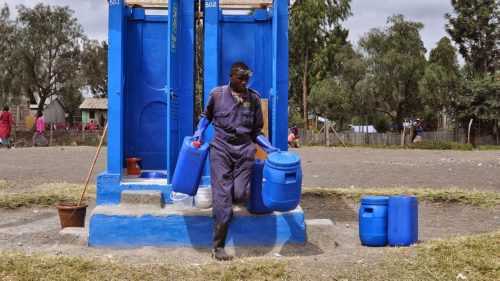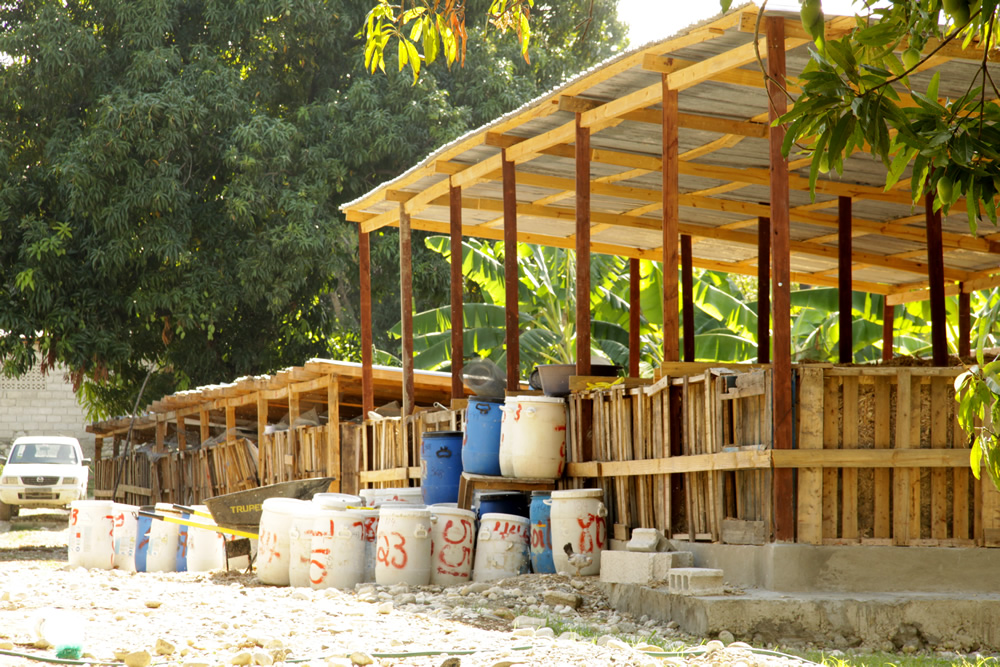“Shit can move on trucks.” [Read more…]
Dealing with Human Wastes in Uncertain Urban Environments
After the January 2010 earthquake in Haiti nearly 1.5 million people in the capitol were living in camps without access to sanitation. In response to the crisis, international agencies installed thousands of toilets within weeks. However, the absence of waste treatment facilities in the country further complicated the sanitation response.
The first treatment facility constructed post – earthquake was a thermophilic composting site designed to treat the wastes from 20,000 earthquake victims living in camps. Despite multiple hurricanes, a cholera epidemic, and political unrest, the SOIL composting facilities have treated over 500,000 gallons of human waste in the past three years, converting it to pathogen free compost, over 10,000 gallons of which has been sold for use in agriculture and reforestation projects.
The experience of thermophilic composting in Haiti is unique in scale and duration and can have global implications for waste treatment in both emergency and development contexts. The simple infrastructure requirements relative to more advanced technological approaches allow for rapid implementation in the wake of a disaster. The infrastructure itself is not dependent on an energy source and materials for construction can be sourced locally. Additionally, the straightforward operation and maintenance facilitate locally managed repairs and on-going service provision.
Thermophilic composting of human wastes in uncertain urban environments: a case study from Haiti (PDF), SOIL Haiti.
Animals as the Answer to Recycling Food waste
Mountains of food scraps end up in landfills every day. While northern countries glorify attempts to facilitate this trash-to-treasure process using state-of-the-art technologies, Bobbili, a town in Northeast India, adopts a tech-free solution – a park using animals for solid waste management.
Sewage, Toilets, and Nutrient Cycles for Dummies
Mathew Lippincott writes: “I read with great relish your new article on human manure. I’ve been working on a project along the same wavelength. There is a small group of people (including ourselves) here in Portland, Oregon who have really gone for humanure, and we’re organizing. Through ReCode Oregon we’re proposing code changes to allow for user-built composting toilet systems. My partner Molly and I just completed six posters on the the topic of sewage, toilets, and nutrient cycles. I hope you like them. We’re working to design composting portable toilets right now, and the lack of knowledge amongst most people on soil processes and nutrient cycles was making us crazy.”








